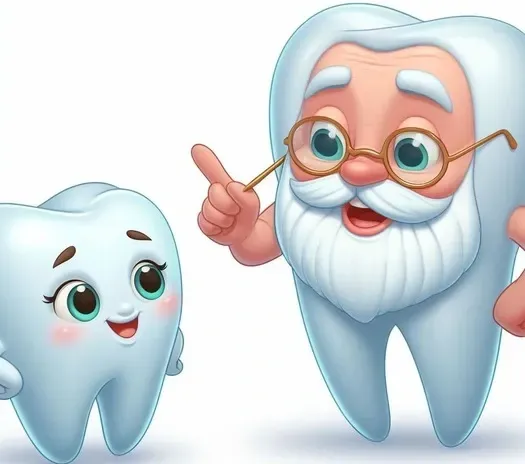Introduction: The Value of Early Oral Health Education
Reflecting back to the early years, it’s often surprising to realize the gaps in one’s knowledge regarding oral health. Many grow up with misconceptions about dental care that, left unchecked, can lead to poor health choices. The narrative of maintaining oral hygiene is frequently narrowed to just brushing teeth, but it overlooks a comprehensive understanding of how early habits form the bedrock for a lifetime of dental wellness. Acknowledging this could spur a shift in educational approaches toward oral health, ensuring future generations are better prepared to care for their smiles.
Establishing good oral health habits from a young age cannot be overstated. These early practices not only prevent dental problems but also instill a respect for the intricate connection between oral health and overall well-being. Incorporating these ideals into the education system could reshape the dental landscape for years to come, saving individuals from hindsight regrets about missed oral care opportunities.

The Basics of Tooth Anatomy and Function
A clearer knowledge of tooth anatomy and function could significantly impact how young people approach their dental routines. Teeth are not just instruments for eating; they play a crucial role in our overall health, speech, and self-esteem. Each tooth, from the sturdy molars to the sharp canines, has its own unique purpose and needs specific care.
Various layers—enamel, dentin, and pulp—and their functions create a complex structure that is more than meets the eye. Helping children and teens understand the importance of each part of their tooth increases their appreciation for maintaining good oral health.
Understanding tooth anatomy is essential for effective preventive care, yet many neglect this in their younger years. Learning how the enamel acts as a fortress against decay, the significance of a healthy gum line, and the vulnerabilities of roots could empower individuals to adopt better dental hygiene habits early on. Such fundamental knowledge is invaluable and lays the groundwork for enduring oral health.
The Real Consequences of Poor Oral Hygiene
The consequences of inadequate oral hygiene extend far beyond the discomfort of a toothache. Chronic issues such as periodontal disease and tooth loss can ensue, with detrimental effects echoing throughout one’s life. As they age, individuals often come to regret not understanding the critical connection between their youth’s oral hygiene practices and their adult oral health status.
Sharing first-hand experiences and stories about the repercussions of neglected oral care is instrumental in highlighting its importance. These personalized narratives can resonate deeply with younger audiences, penetrating deeper than mere statistics or warnings. It’s crucial to instill an understanding that the mouth is not an isolated part of the body—it’s a mirror reflecting one’s overall health.
How Diet Affects Your Teeth
A vital lesson often learned too late is the substantial impact of diet on dental health. Sugar-laden snacks and acidic beverages are typical indulgences of youth and can be the undoing of healthy teeth if consumption isn’t moderated. The acids and sugars in such foods can erode tooth enamel and fuel bacteria, leading to cavities.
If young people knew the benefits of substituting sugary snacks with healthier options and the role of water in neutralizing harmful acids in the mouth, they would be better equipped to make choices that support their oral health.
Demonstrating healthy eating patterns and the impact of specific foods on teeth can nurture lifelong dietary habits that buoy rather than compromise dental integrity.


The Significance of the First Dental Visit
The first dental visit is a milestone that should occur by the time a child turns one or when the first tooth appears. It is a critical step in laying the foundation for a lifetime of healthy teeth. However, worries about the dentist or misunderstandings about when to start dental visits frequently obscure the significance of this event.
Early check-ups not only allow for the monitoring of growth and development but also facilitate a positive relationship with dental care providers. This early introduction to dental care can shape attitudes toward dentists and influence how future dental issues are approached.
If more young individuals appreciated the importance of these initial visits, they might face less anxiety about dental care and embrace it as a regular part of their health routine. The experiences garnered from these early interactions can foster a sense of trust and comfort with the dental care process, values that are essential as they progress into adulthood.
The Role of Fluoride: Myths and Facts
Fluoride often carries misconceptions that prevent its optimal use in dental hygiene. Some consider it unnecessary or even harmful, but these are myths that need dispelling. In truth, fluoride is a defender of teeth, helping to rebuild weakened tooth enamel and slow the progression of cavities. It’s a naturally occurring mineral that, when used correctly, can substantially decrease the risk of dental decay.
Educating young patients about the safe and effective use of fluoride, as well as its role in maintaining oral health, is vital. They should understand how fluoridated toothpaste and drinking water contribute to stronger teeth and why professional fluoride treatments might be beneficial. If this knowledge were more widespread, many might find they suffer fewer cavities and enjoy better dental health throughout their lives.
Understanding Cavities and How to Prevent Them
Cavities are among the most common dental problems, yet their onset is often misunderstood. Knowing that cavities are the result of a complex process involving bacteria, sugar, and acid production could lead to vigilant preventive measures. These are the enemies of healthy teeth, and without proper care, they can penetrate the tooth enamel and cause lasting damage.
Understanding the causes and preventive measures for cavities is a crucial aspect of dental health education. Brushing twice daily with fluoride toothpaste, reducing sugary snacks, and regular dental visits are straightforward practices that can stymie cavity development. Had more individuals been aware of these facts earlier in life, they might now be enjoying healthier, cavity-free mouths.


Tooth Brushing Techniques for Kids and Teens
As simple as it sounds, the act of brushing teeth effectively is laden with nuances that are often overlooked. Educating children on tooth brushing techniques specific to their developmental stage can make a substantial difference. For instance, the introduction of electric toothbrushes or the habit of brushing for two full minutes can enhance the effectiveness of their daily routine.
Fostering an environment where brushing is perceived as both fun and crucial can lead to well-established habits that safeguard oral health for the long haul. With the advent of various apps and gadgets designed to make brushing more engaging, integrating these tools could alleviate some of the ennui that might surround this twice-daily activity.
Flossing and Interdental Cleaning: Why They Matter More Than You Think
The importance of flossing and the use of interdental cleaners is a message that cannot be overstated. However, when reflecting on youth, it’s clear that the full significance of these practices is often undervalued. Flossing does more than just remove food particles; it disrupts the colonies of bacteria that settle between teeth, areas that a toothbrush can’t reach.
Interdental brushes and water flossers can be additional allies in the fight against gum disease and decay, offering a more comprehensive clean for those difficult-to-reach spaces.
Regrettably, the importance of flossing and interdental cleaning is sometimes a lesson learned too late, with older individuals wishing they had integrated these habits into their daily regimen sooner. A diligent routine that includes both brushing and flossing can lead to a lifetime free of dental distress.
Braces: More Than Just Straight Teeth
Braces are commonly associated with cosmetic enhancements, but their value extends beyond aesthetics. They can correct bite issues, reduce the risk of cavities by aligning teeth properly, and even alleviate certain speech impediments. The health benefits of braces, such as decreased wear on teeth over time, can present significant gains for oral health that are not immediately recognized in one’s youth.
Early consultations with orthodontists can identify the need for braces—information that, if known sooner, can lead to timely interventions and potentially more straightforward treatments. Reflecting upon their own adolescent years, many adults express a wish that the full spectrum of benefits offered by orthodontic treatment had been made clearer to them earlier.
Oral Health and Overall Well-being Connection
One of the most poignant lessons learned over time is the deep interconnectedness of oral health with overall health. Conditions such as heart disease, diabetes, and even certain respiratory illnesses have correlations with dental health that are too important to ignore. The mouth serves as a gateway to the body, and issues within it can signal more systemic problems.
Education on how routine dental care can play a role in one’s larger health picture is sometimes acquired too late in life, a realization that comes with a tinge of regret for those who have already suffered complications. Learning about this connection in one’s younger years could alter the course of their health journey significantly, leading to more conscientious choices about oral hygiene and care.
Tackling Common Dental Issues in Adolescence
Adolescence brings a host of dental concerns, from wisdom teeth eruptions to the effects of braces. It’s a critical time for dental health as teens navigate a landscape fraught with choices that could impact their teeth for decades. Common issues such as gingivitis or enamel wear from acidic drinks are just a couple of the challenges faced during these years.
If adolescents are pre-armed with knowledge about common dental issues and how to proactively address them, they are likely to encounter fewer complications down the road. Whether it’s wearing a nightguard to protect against grinding or learning the ideal way to brush around braces, these small but significant pieces of wisdom can be instrumental in maintaining oral health.
Sports, Activities, and Protecting Your Mouth with Custom Guards


Engaging in sports and physical activities is a key component of a healthy lifestyle for many young individuals. However, these activities also carry the risk of dental injuries, which can have lasting effects. Wearing a mouthguard is an excellent way to protect teeth during sports, yet this safety measure is often underestimated or overlooked.
Paradigm Dental Therapy offers custom mouthguards that ensure comfort and effective protection. These mouthguards can be particularly crucial during contact sports, where the risk of impact to the mouth is higher. Incorporating mouthguards into standard sports gear from an early age can prevent a myriad of dental injuries that are otherwise an unfortunate rite of passage for many athletes.
Innovations in Dental Technology and Treatments
Looking back on the innovations in dental technology and treatments over the years can be an eye-opening experience. Procedures and tools that were once unavailable are now commonplace, altering the dental care landscape. Laser dentistry, digital X-rays, and advances in tooth-replacement options like implants have revolutionized the way dental care is provided.
Staying informed about new dental health options and technologies is vital, as these advancements can dramatically improve treatment outcomes and patient experiences. If individuals are equipped with this awareness from a young age, they can better advocate for their dental needs and make informed decisions regarding their care options.
Learning from Elders: Oral Health Wisdom Passed Down
Often, it is the advice from elders about oral health that resonates most deeply. The practices upheld by previous generations, such as consistent brushing, using baking soda for teeth cleaning, or valuing regular dental visits, are testaments to the time-honored wisdom in oral care. Reflecting on these practices can provide valuable lessons for maintaining lifelong dental health.
Encouraging the exchange of oral health wisdom across generations can fortify the knowledge base available to young individuals. By heeding the counsel of those who have navigated dental health challenges before them, they can glean insights that no textbook could offer. The passage of these traditions can preserve the importance of oral health and inspire more diligent care practices.


Communal Influences on Oral Health Perspectives
The influence of community and societal norms on dental health perspectives is significant. A community that places high value on oral health can bolster its members’ commitment to maintaining good dental hygiene; often, however, communities may vary in the emphasis they place on dental care. Outreach and education at a community level can heighten awareness and foster a culture that champions dental well-being.
Understanding the power of communal influence on oral health can drive the expansion of dental health initiatives and support networks. For those who may not receive guidance on dental care at home, community programs can be a beacon of information and motivation.
Therefore, promoting oral health as a communal effort can resonate with individuals from a young age, enhancing their understanding and commitment to good dental practices. Your health, your teeth, your community—they are all related to each other, with healthy smiles paving the way to happiness.
Stress and Oral Health: An Unseen Relationship
Many are surprised to learn about the relationship between stress and oral health later in life. Stress can manifest in the mouth in several ways, including teeth grinding, canker sores, and even gum disease. Recognizing and managing stress can therefore be critical to maintaining oral health as well as overall well-being.
If more individuals were aware from an early age of how stress impacts dental health, they might take proactive steps to manage it, such as mindfulness practices or regular exercise. Understanding this connection can equip individuals with the coping skills needed to safeguard their oral health against stress-induced conditions.
The Habit Loop: Creating Positive Oral Health Routines
The formation of positive oral health routines is often a game of consistency and habituation. The concept of the habit loop—cue, routine, and reward—is a powerful tool for instilling healthy practices. From laying out dental floss near the toothpaste to celebrating cavity-free dentist visits, these reinforced behaviors can become ingrained, leading to improved dental health.
Imparting the knowledge of habit formation to children and young adults can significantly improve their approach to oral care. Making habits visible and framing them within a positive context can encourage adherence and foster routines that are less likely to be abandoned. With these systems in place, sustaining oral health becomes a less daunting task and more of an unconscious part of daily life.
Conclusion: Embracing Oral Health Wisdom at Any Age
While wisdom often comes with age, insights about oral health should be embraced at any stage in life. It is never too late or too early to learn and implement good dental practices. Encouraging an ongoing dialogue about oral health, staying abreast of new treatments and technologies, and embracing good habits can lead to a healthier, happier smile.
For those seeking personalized assessments and guidance, Paradigm Dental Therapy’s new appointment booking system simplifies the process of accessing professional dental care. It’s an opportunity to take control of your oral health journey, equipped with the knowledge and experience of years past and a commitment to the best outcomes for the future.
The knowledge of oral health that many wish they had in their youth is now more accessible than ever. By leveraging this wisdom, today’s youth can enjoy a lifetime of bright smiles and robust oral health, reflections of the care and attention afforded to them from the start.
Embrace the value of oral health today. Visit Paradigm Dental Therapy for personalized care and prevention—because it’s never too late for a healthy smile.
Discover the importance of early oral health education and tips from generations past.
Book your appointment with Paradigm Dental Therapy and secure your smile’s future.


